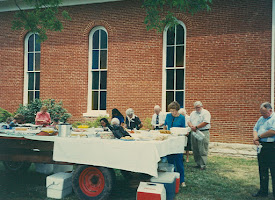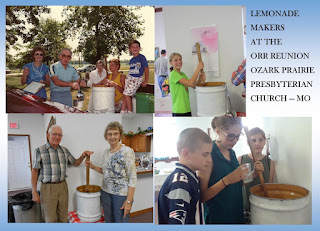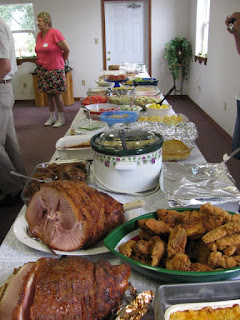I write four mystery series, two in first person point of view (Jolie Gentil and River's Edge series) and two in third person (Logland and Family History Mysteries).
First person comes more naturally to me, and I like the idea that readers only know what the sleuth knows. There are challenges, mostly the flip side of what I like -- I can't reveal anything to readers unless the sleuth discovers it directly or indirectly.
 There's no getting around that first-person cozy mystery amateur detectives (at least in series) can come off as nosy. Generally, the first book in a series throws the crime solver into the mix because something happens to her (or him). In some series she discovers a body and is blamed for the murder. Other times it's someone close to the sleuth and she doesn't want to see them convicted of a crime she is certain they didn't commit.
There's no getting around that first-person cozy mystery amateur detectives (at least in series) can come off as nosy. Generally, the first book in a series throws the crime solver into the mix because something happens to her (or him). In some series she discovers a body and is blamed for the murder. Other times it's someone close to the sleuth and she doesn't want to see them convicted of a crime she is certain they didn't commit.
After the first book, the protagonist needs reasons to get involved in (usually) murders that may not directly pertain to her. I like to pepper the two first-person series with townspeople who can come to the forefront in future novels. Jolie knows them, so at some level she cares what happens to them -- or to the person who is accused of the crime. I also have her as a real estate appraiser, which puts her into contact with lots of people and businesses.
In first-person mysteries, the crime solver does a lot of internal musing. They can in third-person books, too, but since information can be revealed in more ways, the sleuth's thought process doesn't have to be as detailed.
I don't use a narrator in the two third-person series, so there is no lecturer to describe the scenery, history, or what characters wear as they enter a scene. I may have the sleuth spend time observing a setting, but even in third person, if a room is to be described there has to be a reason beyond the character walking into it.
What I like best about third-person books is that there can be multiple points of view. In the Family History Mysteries, I used Digger's POV only in the first book, and expanded to add Marty's (a reporter friend) in books three and four.
There's also the most popular character -- Digger's Uncle Benjamin, a companionable (if sometimes annoying) ghost. He a good example of a device that can become part of the drama. There's no way Digger can know all local history, or who did what to whom over the last seven or eight decades. (She's in her late twenties.) Uncle Benjamin can provide background and point her in varied directions.
Some of my earliest writing (which will never see the light of day) had multiple points of view, sometimes in the same chapter. I didn't switch heads within a scene -- or I don't recall doing that. It's painful to reread the stuff. Over time, I learned that I used several points of view because it was easier for me than to figure out how to discover information when only one or two people did the thinking.
Note I said for me. Lots of books have multiple POVs. I'm not about to say five or ten is too many if it suits an author's purpose.
Every time I read, I learn what an author does well. Occasionally I spot something that seems awkward, but that can be interesting, too. Bottom line, point of view decisions are complex ones. I enjoy the challenges.
* * * * *
To learn more about Elaine, visit her website or sign up for her newsletter.


